| |
Eric Mercury
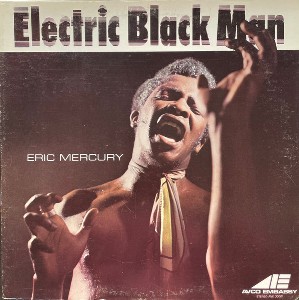
Electric Black Man
Avco Embassy - 1969
Michael Panontin
|
When he passed away in March 2022, Eric Mercury was unknown outside of a tiny niche of hardcore Canuckophiles. There were few if any mentions in the international or the music press. But here in Canada, there were sizeable obituaries in several newspapers and even - amazingly, I'd say - a full-page piece in The Globe and Mail.
His discovery a half century or so earlier adhered to a similar script.
Mercury had cut his musical teeth in Toronto, first singing doo wop in the Pharaohs (which also included a young Jay Jackson) and then soul with the Soul Searchers (whom Brenda Russell remembered as "the biggest soul band in the country"). He even put out a single, the phenomenally rare northern soul floor shaker 'Lonely Girl', as Eric Mercury and the Soul Searchers.
But all of that mattered not a whit when he arrived in New York City in 1968, "with nothing but a library card in his back pocket and $52 to his name", as Brad Wheeler wrote in the aforementioned Globe and Mail obit. The Canadian singer was a total unknown, and soon found himself sleeping rough, at the New York Port Authority Bus Terminal as well as in an abandoned Studebaker under the Westside Highway.
But one night, Mercury walked past the Cafe Au Go Go in Greenwich Village and noticed that Blood, Sweat and Tears (with the recent addition of fellow Torontonian David Clayton-Thomas on vocals) were on the bill that night. Mercury walked down the stairs and hung around the doorway for a bit, and Clayton-Thomas, after spotting his erstwhile Yonge Street chum - "We used to sing duets at the Zanzibar Tavern," he later remarked - pointed him out and announced to the crowd, "Over there stands a guy who's one of my favourite singers in the world."
Then came a plot twist worthy of a Hollywood film (except that it was a Canadian who saved the day). "I ran up on stage, and we did a sort of impromptu jam for a few brief minutes," Mercury would later tell journalist Bill King, "and the managers, Bennett Glotzer and Dennis Katz, grabbed me as though I was the second coming. I have David to thank for that; my life changed from that moment."
Mercury was offered a gig at the Cafe Au Go Go, with a band that he "cobbled together from the street". That got him noticed by many industry players, including songwriters/producers Luigi Creatore and Hugo Peretti, who offered to sign the singer on the spot. It wasn't long before the deep-throated Canuck found himself in the studio to record his first LP.
Electric Black Man was issued in 1969, a year when soul, psychedelia, country and acid rock commingled on the charts, sometimes within the same song. And all of those ingredients are evident in the album's savoury sonic stew. With a band that included former Electric Flag bassist Harvey Brooks and the McCoys' - and future 'Rock and Roll Hoochie Koo'er - Rick Zehringer on guitar, Mercury must have had his eyes on those charts himself.
But as he explained to King, the industry was unready for the record's heady mix of blackness and rock and roll. "'Black rock' was how they began to refer to it. There were only a few black musicians that were involved in the creation of it. R&B radio didn't even play Jimi Hendrix." What's more, as Mercury has hinted, even the title was problematic. "There was no conversation about Black anything in the artistic community except for the Last Poets. To raise the subject was the kiss of death in the business."
Electric Black Man opens with the excellent 'Long Way Down'. The song is a powerful blast of deep soul that by rights should have at least charted on the R&B lists. Mercury's raspy vocal is spot on, recalling Otis Redding, Wilson Pickett, his idol Don Covay, even Steve Marriott. But with barnyard strings and extended guitar solos wafting in and out, it's easy to see how it might have confused certain audiences. There are more thrills therein: 'Earthless' is an extended jam that sports some damned impressive guitarwork, Donovan's 'Hurdy Gurdy Man' is given the pure Stax treatment and the more delicate 'Again and Again' hints at Terry Callier. But the highlight is the titular track, a potent soul/funk gumbo that was the first song Mercury wrote and one that definitely deserves to be unearthed.
In all, Mercury recorded six LPs between the years 1969 and 1981. He wrote songs for the likes of Dusty Springfield, Donny Hathaway, Dionne Warwick and Roberta Flack. He even sang on the much-loved Gatorade commercial, 'Be Like Mike', featuring Michael Jordan and a staple during NBA telecasts during the '91-'92 season. Mercury spent a good 34 years outside Canada - in New York, Chicago, LA, and even a 22-month stint in Cuba - before finally coming home in the late nineties.
|
|
Suggestions
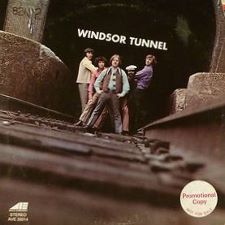
Windsor Tunnel
Windsor Tunnel
Avco Embassy
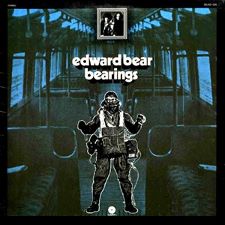
Edward Bear
Bearings
Capitol
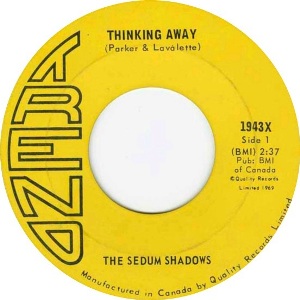
The Sedum Shadows
Thinking Away / Anatomy of a Shadow - 7"
Trend
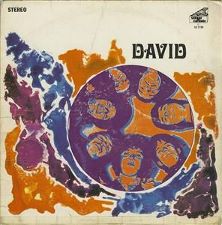
David
David
Sound Canada
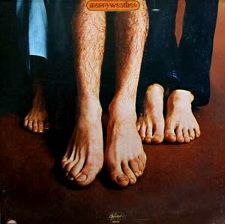
Merryweather
Merryweather
Capitol
|








